Maintaining proper documentation and financial records is crucial for sustainable growth and compliance in today’s fast-paced business environment. As accounting professionals, we’ve seen how organized record-keeping can transform business operations and set the foundation for success. Proper documentation matters significantly in several key areas: it enables informed decision-making through accurate financial data, ensures regulatory compliance through well-maintained records, facilitates growth planning using historical data for forecasting, and provides essential risk management during audits or reviews.
Regarding essential financial record-keeping practices, regular transaction recording forms the cornerstone of sound business management. This includes documenting all financial transactions weekly, maintaining detailed records of income and expenses, utilizing QuickBooks Online or similar accounting software for consistency, and keeping digital copies of all invoices and receipts. Systematic organization plays an equally important role, requiring a standardized filing system, chronological document organization, clear naming conventions, and separate files for different financial categories.
Time management strategies are vital for maintaining these systems effectively. Successful businesses schedule weekly bookkeeping sessions, set aside time for monthly reconciliations, create reminders for important financial deadlines, and plan quarterly review sessions. In today’s digital age, leveraging automation for efficiency has become increasingly important. This includes implementing automated bank feeds, utilizing receipt scanning applications, setting up recurring invoice templates, and automating payment reminders.
Cloud-based storage solutions have revolutionized document management by allowing businesses to store documents securely in the cloud, enabling easy access from anywhere, implementing automatic backups, and ensuring proper data encryption. For optimal documentation success, businesses should maintain consistent procedures, regularly review and update processes, train team members on documentation protocols, perform regular data backups, and keep audit trails for all changes.
Tips for Small Business Owners
- Daily Habits
- Record transactions as they occur
- File important documents immediately
- Review cash flow positions
- Check for upcoming payment deadlines
- Monthly Tasks
- Review financial reports
- Update budget projections
- Check compliance requirements
Professional support plays a crucial role in maintaining these systems. Working with qualified accounting professionals ensures accurate record-keeping, compliance with regulations, optimized financial processes, and strategic financial planning. Remember, proper documentation and financial record-keeping aren’t just regulatory requirements – they’re essential tools for business success. By implementing these practices and leveraging automation, you can create a strong foundation for your business’s financial health and growth.




